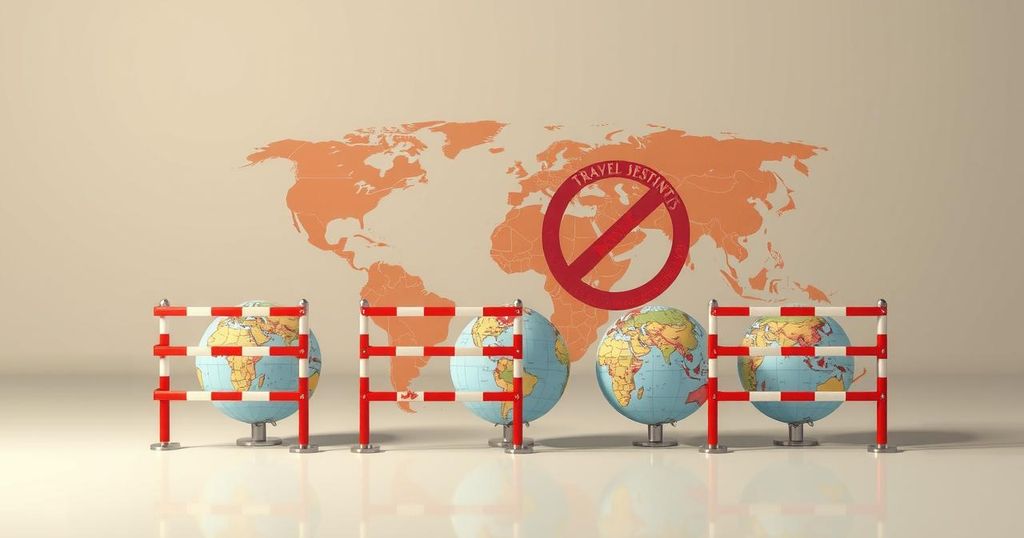Trump Issues Travel Ban for Nationals of 12 Countries Amid Security Concerns
President Donald Trump has signed an executive order banning travelers from 12 countries and imposing partial restrictions on seven others. The ban cites security concerns, particularly following a recent terror attack in Colorado. This executive action echoes past travel restrictions implemented during Trump’s previous term, which faced significant legal challenges.
In a significant move, President Donald Trump has signed an executive order that bans the entry of travelers from 12 countries into the United States while imposing partial entry restrictions on citizens from seven additional nations. This decision has raised eyebrows as it echoes previous travel bans that sparked widespread debate and legal challenges during his first term in 2017.
The countries affected by the full travel ban include Afghanistan, Myanmar, Chad, Congo, Equatorial Guinea, Eritrea, Haiti, Iran, Libya, Somalia, Sudan, and Yemen. Meanwhile, partial restrictions will apply to Burundi, Cuba, Laos, Sierra Leone, Togo, Turkmenistan, and Venezuela, all due to concerns over immigration law compliance and high visa overstay rates among their nationals.
The impetus behind this decision follows a terror attack in Boulder, Colorado, which authorities attributed to an individual in the country illegally. Trump stated, “The recent terror attack in Boulder, Colorado, has underscored the extreme dangers posed to our country by the entry of foreign nationals who are not properly vetted.”
The Trump administration has justified these restrictions citing various concerns, such as the Taliban’s control in Afghanistan, state-sponsored terrorism in Iran and Cuba, and what they refer to as an influx of illegal migrants from Haiti. Chad and Eritrea were particularly singled out for having high visa-overstay rates with staggering figures — 49.54% for Chad’s B1/B2 visas and 55.43% for Eritrea’s student and exchange visas.
In this latest order, the partial restrictions on the seven other countries aim to limit various visa types due to the country’s inability to enforce immigration laws effectively. Citizens from Burundi, Cuba, and others will find it tougher to secure immigrant and non-immigrant visas following this latest proclamation.
This is not Trump’s first foray into travel bans; during his earlier administration, he enacted a prohibition on travelers from seven predominantly Muslim nations, a policy that faced significant legal scrutiny and alterations before being upheld by the US Supreme Court in 2018.
In a notable turnaround, President Joe Biden, who succeeded Trump, rescinded this travel ban shortly after taking office in 2021, labeling it as “a stain on our national conscience.” This recent order from Trump certainly raises questions about immigration policy direction, not to mention the divisive nature of such measures as they reappear in public discourse.
In summary, President Trump’s latest executive order imposes a travel ban for nationals from 12 countries and partial restrictions on seven others, citing security threats. This comes on the heels of a domestic terror attack. As history shows, such bans have stirred controversy, with Biden’s administration previously reversing Trump’s earlier travel restrictions. The impact of this new order and public response remain to be seen.
Original Source: www.hindustantimes.com




Post Comment